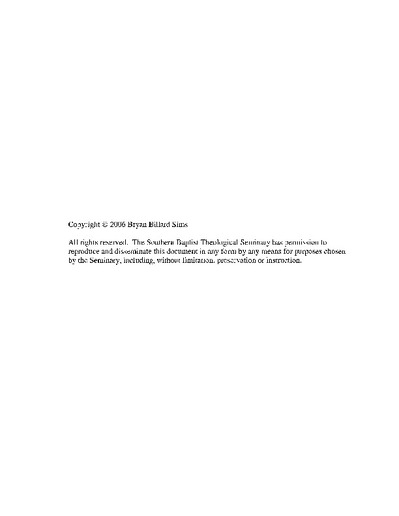| dc.description.abstract | This thesis assesses two prominent evangelical models of worldview analysis and, in light of the findings, offers a constructive proposal. Chapter 1 describes evangelicalism's implementation of the worldview concept. It argues that apologetics must be carried out on the worldview level. Hence, there is a compelling need for rigorous worldview analysis of opposing positions.
Chapters 2 and 3 delineate the elements of transcendental and abductive worldview analysis, respectively. Both chapters provide a brief historical sketch of the distinct methodologies. In addition, each methodology is explored in terms of its strategy, engagement with other worldviews, and strengths and weaknesses.
This study concludes that transcendental analysis suffers from several crippling weaknesses. It is unable to bridge the gap from ontological to conceptual necessity and to overcome the possibility of hypothetical worldview competitors. Also, significant portions of the transcendental starting point, the biblical canon, fail to give self-attestation, thus requiring external validation. Transcendental analysis seems better suited for usage in scenarios where an opponent can be reduced to absurdity or for a proof of God's existence based on a common phenomenon of human experience. Overall, abductive analysis stands as the superior option. However, it was noted that it best operates within a framework that contains relevant background information for establishing common ground. This is the aim of the last chapter.
Chapter 4 articulates a constructive proposal for evangelical abductive analysis. It argues that the proper framework for abductive analysis should follow the contours that Scripture lays down itself---the fundamental plot line of redemptive history. The best articulation of this plot line is the creation-fall-redemption matrix (CFR). This schema maintains cosmic significance, touching upon the core existential issues of humanity---human origins, predicament, and remedy. Thus, it offers the best opportunity of establishing contact with the background beliefs in hopes of demonstrating that the Christian worldview offers the best explanation to these pressing matters.
Chapter 5 summarizes the essential points of the study and suggests areas for future research. | en_US |

